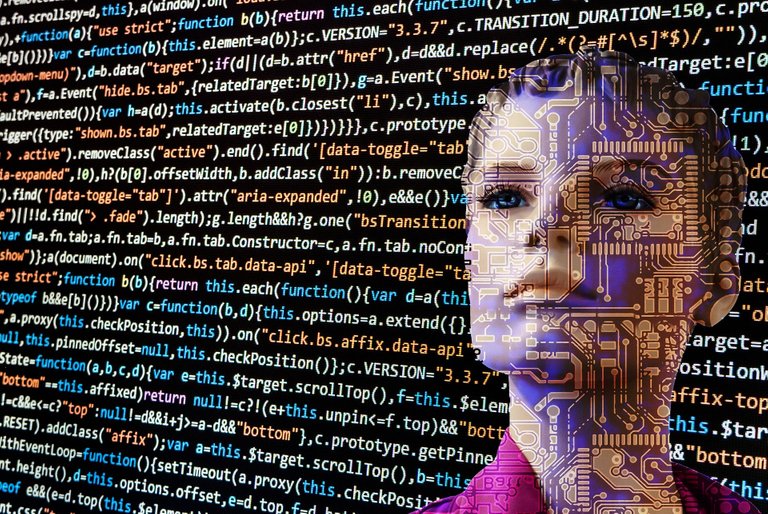Death-Predicting AI But Nobody Knows How
An AI that was trained at 1.77 million electrocardiograms is good at predicting who will die within a year. It can find heart problems even in people who doctors consider to be healthy.

Image by Gerd Altmann from Pixabay
- Be also sure to check out my other posts and follow me @kralizec and subscribe to my Youtube channel at Kralizec Gaming Youtube Channel
Artificial intelligences are amazing, breathtaking and sometimes pretty scary. The last adjective perfectly fits a new medicinal AI that was trained by experts from a local health system in Pennsylvania and New Jersey called Geisinger Health System (GHS). This AI is pretty good at predicting which patients will die within a year. But there is a problem. Even its creators do not know how the AI achieves its results.
The experts fed the AI with a total of 1.77 million EKGs that came from roughly 400 thousand patients. Their goal was to have the AI learn to distinguish situations that would be a mark on future heart problems. The results are truly impressive. And a bit creepy. The trained AI is much better than any currently used methods to predict the health of patients.
The research lead – Brandon Fornwalt – says that they found no model that would be better than their AI. It can pretty reliably predict which of the patients will die within a day. And it can even detect problems in people who cardiologists said are healthy for their age. Fornwalt is convinced that their AI notices things humans are either incapable of noticing, ignore as noise, or think of as fluctuations within the norm. The AI could teach us which things are important for patients with heart problems that we have ignored for decades.
Funnily enough, this isn't the first death-predicting AI out there. Google specialists from the Californian Mountain View developed an AI last year that based on patients' history predicts how long will they stay in a hospital and sometimes even their deaths. And some other AIs diagnose serious health problems like heart problems or lung tumors better than their human colleagues.
The reason why I am writing about the Geisinger AI is that even its creators do not know how the AI works. That truly scares me. And it is also one of the reasons why some experts warn us from making rash decisions based on AI predictions. Yet, I do not agree with the experts. Just because we do not understand how the AI works doesn't necessarily mean they should not be trusted.
Sources:
- https://futurism.com/neoscope/ai-knows-when-youll-die-how
- https://www.newscientist.com/article/2222907-ai-can-predict-if-youll-die-soon-but-weve-no-idea-how-it-works/
- If you like the content I’m producing about science maybe you will like the content I produce about gaming as well! Be sure to check out my other posts!
Hello,
Your post has been manually curated by a @stem.curate curator.
We are dedicated to supporting great content, like yours on the STEMGeeks tribe.
Please join us on discord.
The reason the programmers don't know is because they are allopaths.
This stuff has been known for a very long time in naturopathy.
The allopathic mindset makes sure that the doctors cannot see what is right in front of their faces.
Every doctor knows that the emotional disposition of a patient greatly affects the outcome, however, it is never analyzed... because that would mean that allopathy is completely false. The core foundation that if we just add the right amount of chemicals to the body, it will be all better.
Allopathic doctors treat 1/7th of the body, in only one paradigm.
So, the amount of information they are avoiding looking at is somewhere around 98%.
I really do not want to sound rude, but.
If they are looking at one-seventh of the information, then they would be avoiding looking at about 85 % of the information.
So... yeah, while I do agree that the emotional disposition of a patient can obviously affect his health I am pretty sure that doctors do take that into account.
And how the frick would the AI now how what the emotional state of the patient is from an EKG.
Man, you aren't even trying anymore.
I said what i said because i know 6 layers of the human body that allopathic medicine doesn't even look at.
And if we look at the 1 layer they do look at, they just found the largest organ in the human body this decade.
So, yeah, they are missing 85% of the information.
Soooo, homeopathy gives a tincture, an almost untraceable amount of a chemical to people and have a curing statistic higher than placebos.
Allopathic medicine just say... that's because they aren't being scientific.
(or blaming the homeopaths of messaging the numbers. Unfortunately, the allopaths REALLy message their numbers, and all the homeopaths do is count people treated and peoples cured. )
And this is just one branch of original medicine (called "alternative" today) that has been used for centuries that allopathy ignores.
If you really look into alternative cures for cancer, you will find astounding stories.
People with stage 4 cancer, told to go home and die by the allopaths are cured (not treated) of their cancer.
But don't look too deep into this because you will find the best "doctors" (they were thrown out of the AMA) at curing cancer commit "suicide" at a very high rate.
Oh, i should state that the AI is not blinded by the biases of allopathy.
And this is why it picks up on signal that is ignored by doctors.
Basically, doctors should have a year of music, and then they would recognize a heart BEAT.